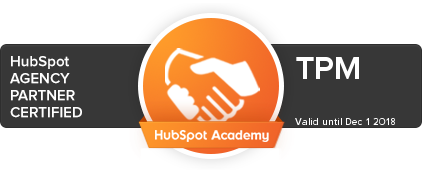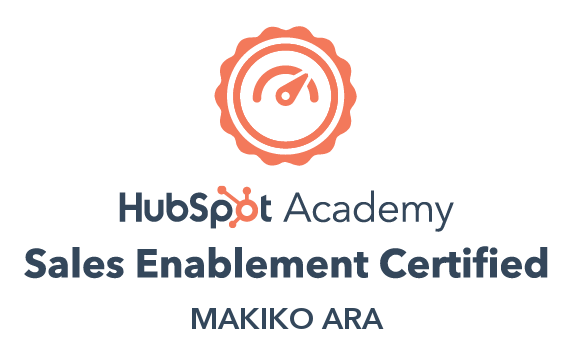Struggling to close deals? Tired of waiting for lukewarm leads to heat up? Wishing you could spend more time on high-value sales activities and less time on tedious administrative tasks? Today is your day — AI is here to solve all your sales enablement problems!*
OK, AI in sales enablement isn’t the singular solution the internet might have you believe. But AI sales enablement tools can make your life easier. More importantly, there’s a good chance your competitors have already started combining the power of sales enablement and machine learning — can you really afford to keep waiting “until the technology is mature enough” or whatever excuse it is you’re using to put off embracing AI?
No, AI isn’t here to replace human sales representatives. But sales teams that embrace the power of AI will replace those who don’t. And they’ll do it sooner than you think.
With that in mind, let’s explore some of the most common ways to use AI in sales enablement, what you’ll gain from doing so, and how to get started.
The Benefits of Sales Enablement and AI
Stop reminiscing about the good old days when sales began as a casual conversation between two people. (One, most of us weren’t actually in sales when that was a thing, and two, those days aren’t coming back.) Modern sales is a strategic, data-driven activity, and technology (including AI) presents opportunities for sales reps to reach business goals faster and with more precision than ever.
Sales enablement, in case you haven’t been paying attention, is a strategic cross-functional discipline designed to increase predictable sales results. AI can help achieve this by helping sales teams automate tasks, tackle complex problems, and streamline the selling process.
Traditional, old-school sales is like a bicycle. Combining AI and sales enablement converts your comfortable cruiser into a fully equipped electric bike. You’re still doing the same things and going the same places, but now you can get there a whole lot faster — and with less work.
Here are just a few of the benefits of incorporating AI in sales enablement strategy.
1. Increased operational productivity
Do you know how much time the average salesperson spends selling? 30% — that’s right, 70% of your team’s time is spent on non-selling tasks. Using AI-powered tools to automate repetitive or mundane tasks — like lead qualification or sending follow-up emails — can lower costs and free up sales representatives to focus on opportunities that deliver the best return on investment.
Did You Know? 92% of teams that have implemented AI-powered tools in enablement say they have increased operational efficiency.

2. Decisions rooted in data
Studies show that at least 50% of prospects aren’t a good fit for what you sell. AI sales enablement tools can provide valuable intelligence and market insights to help make every interaction your sales team has count. AI tools can quickly cull data from the web, emails, phone calls, and chats to help your team make strategic sales moves that pay off.
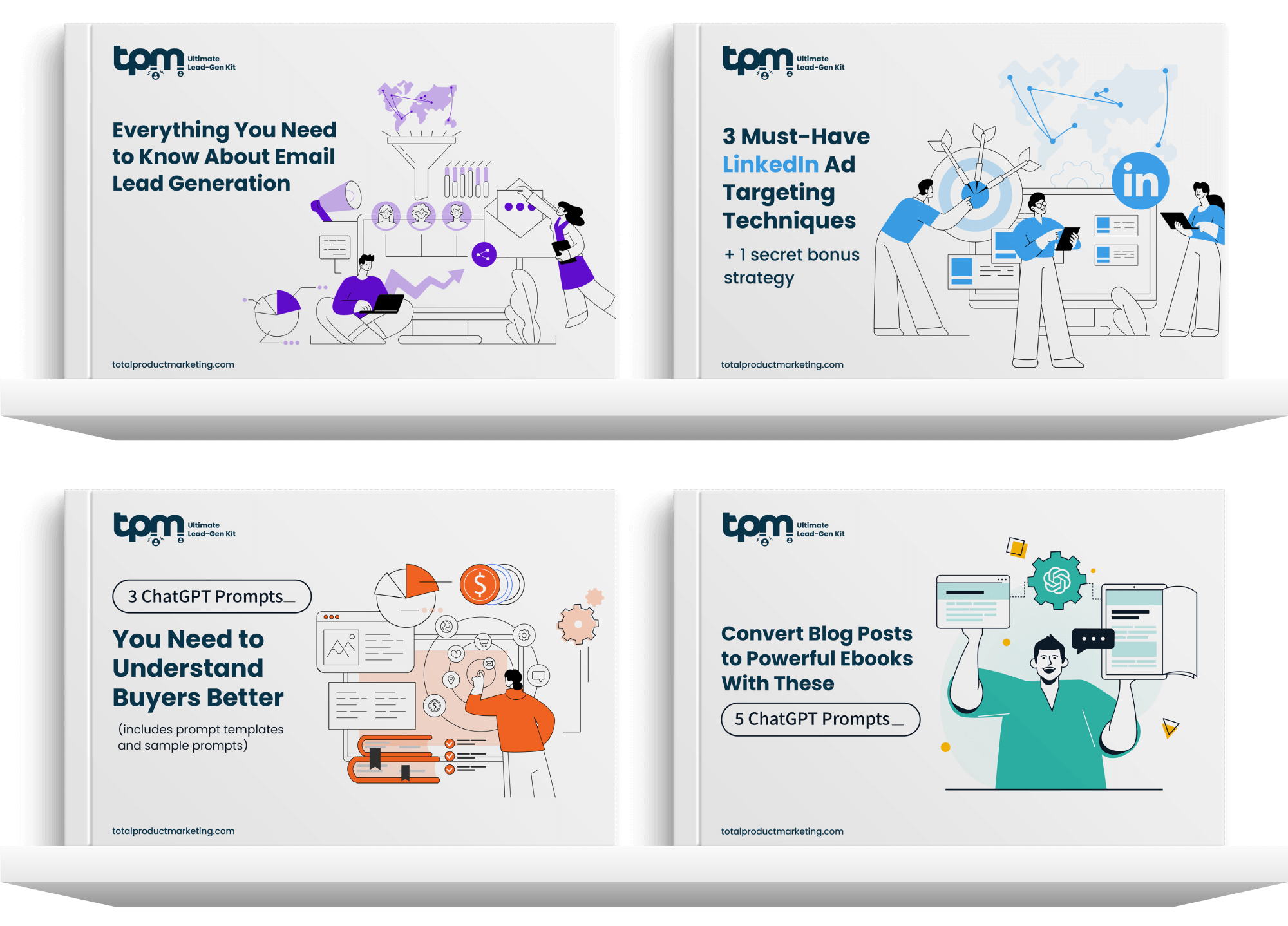
Shortcut FTW! TPM’s Ultimate Lead-Gen Kit includes a series of ChatGPT prompts guaranteed to help you find and understand your target audience.
3. A superior customer experience
Personalization is no longer a luxury for sales teams, but a necessity. McKinsey data shows that 71% of customers expect interactions with a brand to be personalized, and 76% express frustration when they don’t receive it. AI empowers you to hyper-personalize interactions with prospects based on who they are, where they are, or recent actions they’ve taken.
A Solid Success Rate: 66% of sales professionals believe AI helps them better understand customers and provide personalized experiences.
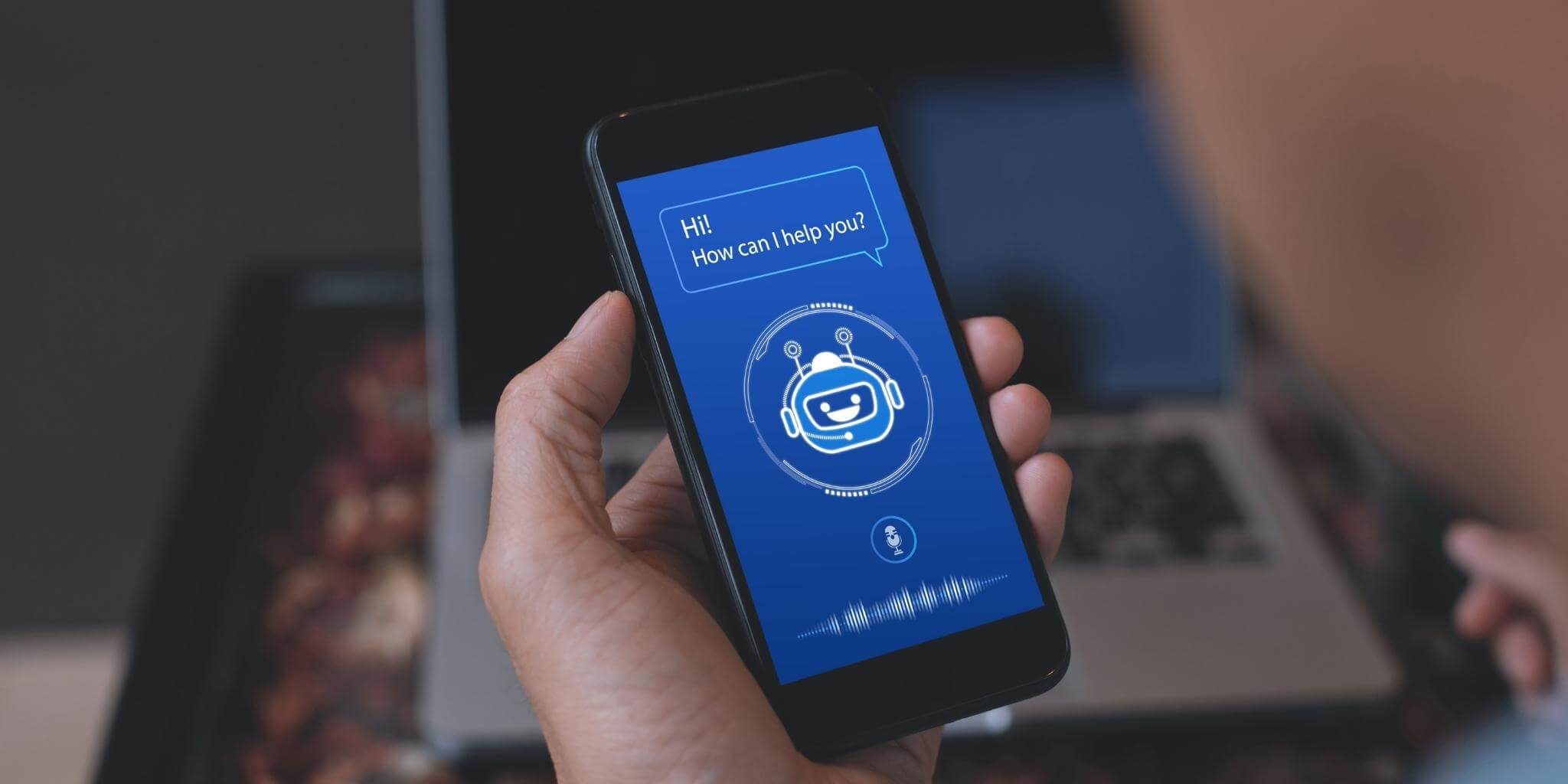
How to Use AI in Sales Enablement
Now that we’ve established that AI capabilities are a good match for sales enablement programs, let’s examine this relationship from a different perspective. Based on our sales enablement framework, here are some ideal use cases for AI in sales enablement.
- Generating lookalike leads more intelligently
AI tools can find patterns and extract insights from your customer data, essentially building ICPs and buyer personas for your sales team to help define the market problems you’re solving and inform sales tactics.
- Prioritizing prospects
Machine learning and sales enablement combined also help predict which leads your teams should pursue next by analyzing sales data and identifying leads with the highest chance of converting.
- Handle inquiries around the clock
Chatbots and virtual assistants can have conversations with potential customers on your website automatically, collecting contact information and qualifying them before handing them to a salesperson to close.
- Identify best-fit leads with laser focus
Sales reps are often overwhelmed with data from contacts that are actually a poor fit for their business. Sales enablement AI tools can create smart lead-scoring systems that help generate and convert best-fit leads at higher rates.
- Turn information into assets
The modern sales process is driven by data, but too much data can be counterproductive, especially if you don’t have the ability to convert information into insights. AI analytics tools can detect trends and patterns for more accurate forecasts, and help you choose and apply KPIs for a better understanding of what works (and what doesn’t).
- Amp up account-based marketing
Account-based marketing yields big results — for most, a higher ROI than other marketing strategies. AI sales enablement tools help refine your vision of the ideal customer — helping you target specific accounts with personalized content that boosts conversions.
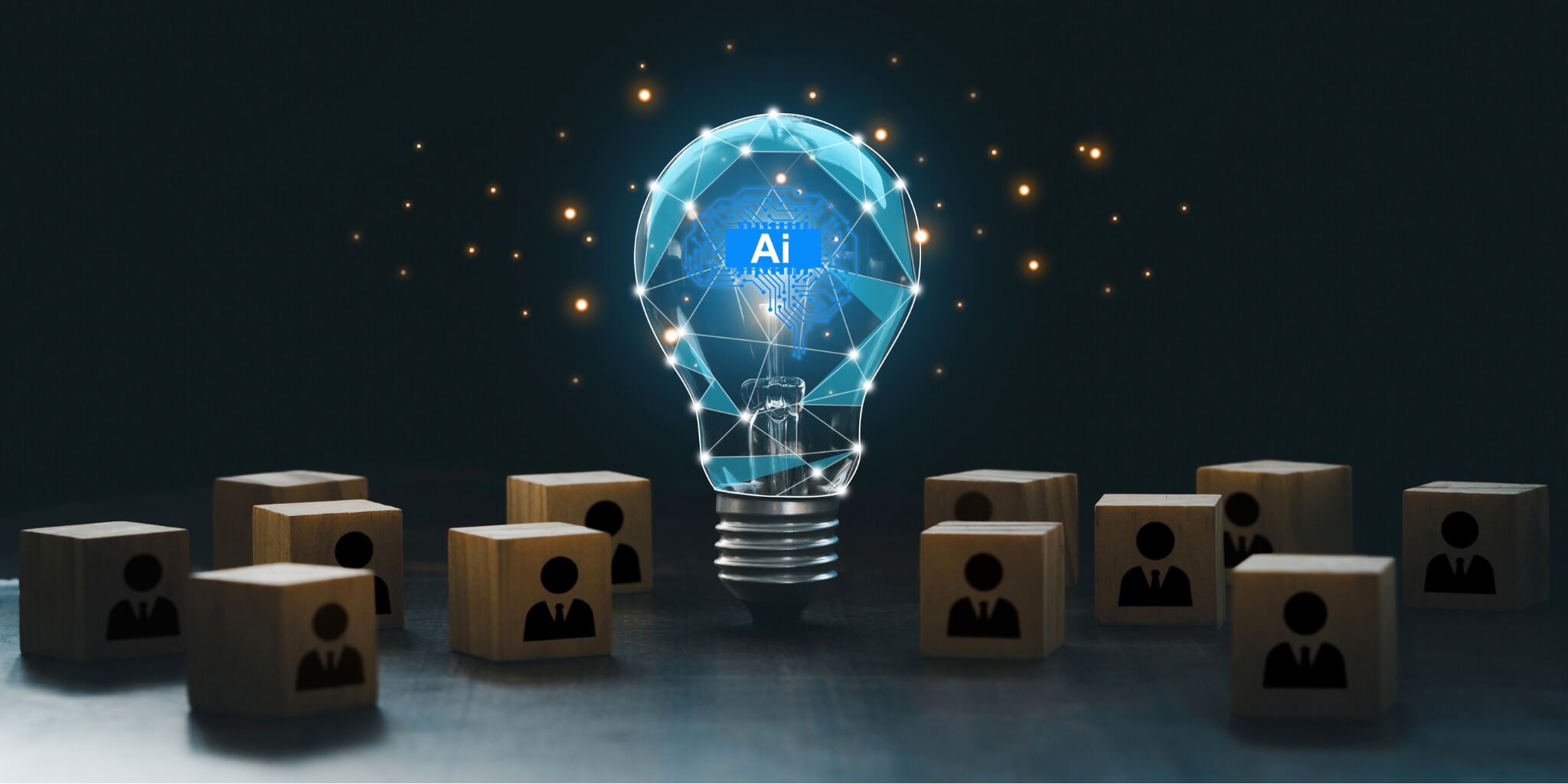
Integrating AI in Sales Enablement
AI can be a powerful tool for sales enablement, but you still need to implement it carefully. This checklist can help ensure your investments in AI sales enablement tools pay off.
- Determine what you want to achieve. Set goals for your AI in sales enablement strategy — improving lead conversion rates, improving customer experience, boosting sales productivity — whatever your organization needs.
- Make sure your data is ready. Bad or incomplete data will compromise your results. Make sure data — wherever you get it — is relevant and of high quality. Don’t forget to ensure you maintain compliance with local privacy regulations.
- Choose your weapon. With your objectives in mind, research AI sales enablement tools that will meet your needs. Evaluate them based on how they will integrate with existing systems, their useability, and how much onboarding will be required for your team to use them effectively.
- Observe and update as needed. AI technology is evolving rapidly, and the solution that seemed like the obvious choice may fit less well as time goes on. Regularly analyze the efficacy of your AI sales enablement tools and programs and adjust as needed.
The team at TPM has firsthand knowledge of the challenges associated with integrating AI into various sales and marketing processes — we’ve even documented our experiences. If you’re ready to get on the AI train but not sure where to start, we can help. Contact us today to discuss your needs.
Enjoyed this read?
See our full collection of Sales Enablement blogs to close more deals, faster!

